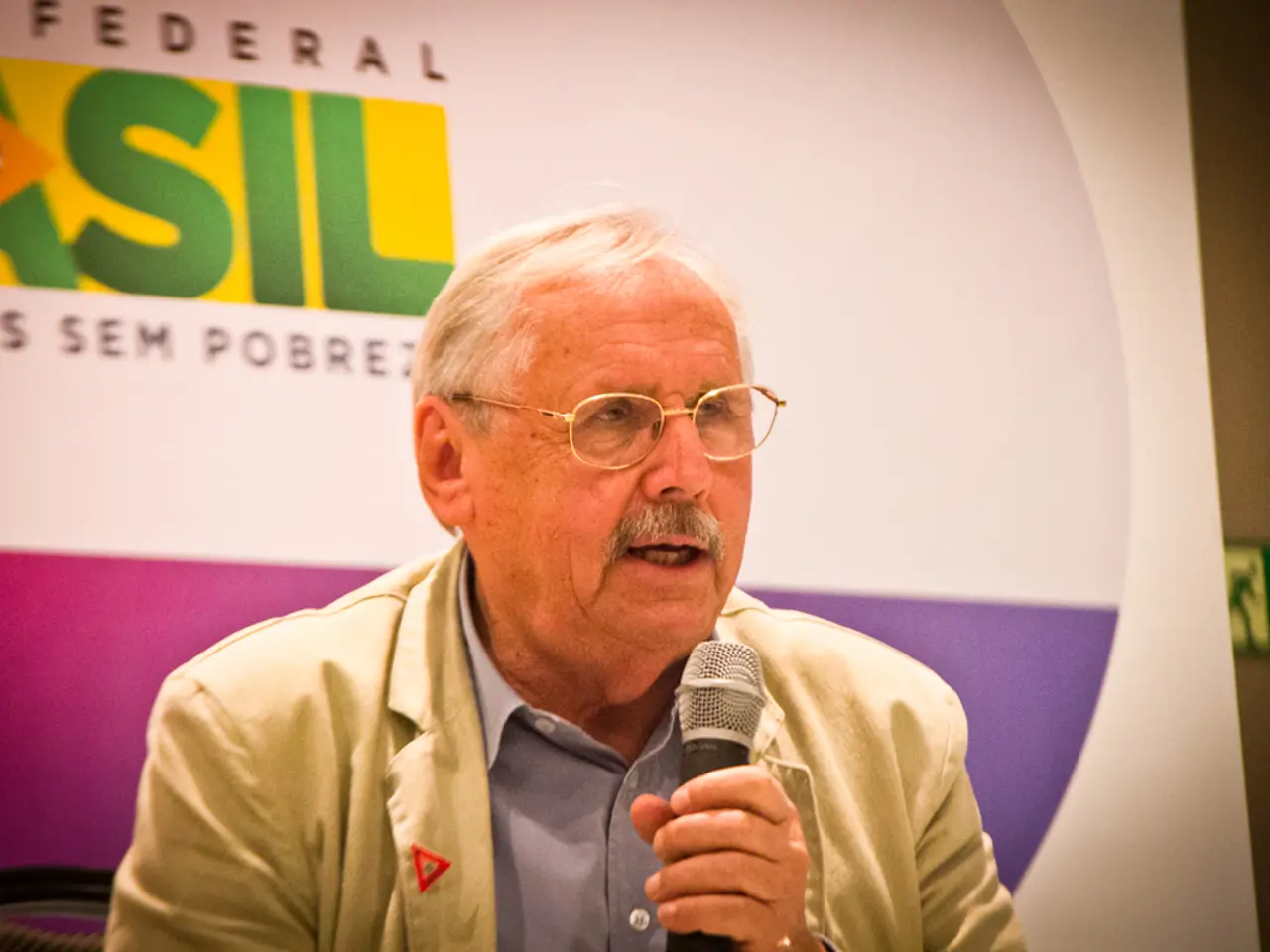Epstein-related conspiracies persistently endure within QAnon movement, with Trump acknowledging their lasting impact. The Epstein theories are unlikely to fade away.
In October 2020, a conference named QCon took place just outside Phoenix, Arizona, attracting a crowd of approximately 60 people, many of whom were fervent followers of the QAnon conspiracy theory. The theory, which alleges a powerful cabal of elite pedophiles controls the government, has gained significant traction in recent years, particularly among Donald Trump's supporters.
Originated in October 2017 from anonymous posts by "Q" on the 4chan internet forum, QAnon claims to be a government insider with top-secret "Q clearance." The cryptic posts, known as "Qdrops," were pieced together and amplified by online communities on platforms like 4chan, Reddit, and YouTube, creating an expansive narrative that suggested an upcoming event called "The Storm" would expose and capture members of this cabal.
QAnon gained traction in a political climate characterized by distrust in mainstream media, fueled by widespread misinformation, fake news narratives, and Donald Trump's own pattern of false and misleading claims. Trump's own amplification of QAnon-promoting accounts, such as posting memes that include QAnon iconography, is considered a thousand endorsements of the wild conspiracy theory in the eyes of its adherents.
Jeffrey Epstein, a convicted sex offender and accused sex trafficker, is a central character in the QAnon theory. The interview that reignited talk of the Epstein files was given by House Speaker Mike Johnson to MAGA influencer Benny Johnson. In the MAGA media universe, which has become lucrative in part because of the fervent followers who are sold conspiracy theories daily, one can expect to hear about the 2020 election being stolen or about Epstein and an evil cabal of liberal elites covering up a global child sex-trafficking operation.
As of May 2025, Trump had amplified QAnon-promoting accounts on his Truth Social page more than 1,000 times since 2022. Trump's refusal to denounce QAnon was celebrated at the conference as an endorsement of the conspiracy theory. However, Trump has blamed the mainstream media for turning the Epstein files saga into a scandal for his administration.
The impact of QAnon has extended beyond the United States, with the movement spreading to Europe, where localized versions such as Q Europe and Q Deutschland have gained tens of thousands of followers. These groups have integrated QAnon conspiracy theories with local political issues, for example mobilizing around protests related to the Yellow Vest movement in France and Brexit-related campaigns in the UK and Germany.
In the broader theoretical context, QAnon fits the pattern of conspiracy theories as articulated by historian Richard Hofstadter, who described the "paranoid style" in American politics. Conspiracy theories like QAnon emerge from a collective sense of threat and alienation within the political system, often surfacing among groups feeling marginalized and distrustful of political institutions. QAnon specifically accuses prominent Democrats of heinous crimes, echoing other right-wing conspiracies such as replacement theory, and aligns with Hofstadter's observation that conspiracy theories ebb and flow with social tensions and political conflicts.
On a Saturday afternoon in October 2020, the crowd at QCon cheered as they watched a video of President Trump, who refused to disavow QAnon during an interview with NBC News' Savannah Guthrie. While conspiracy theories can seem stupid, they don't go away, and neither do the people who passionately believe in them. Trump has relied on MAGA's obsession with such theories to demonize his political opponents and fuel his electoral success. Now, he has to deal with the consequences of that strategy.
[1] https://www.vox.com/2018/10/30/18012448/qanon-conspiracy-theory-explained [2] https://www.washingtonpost.com/politics/2020/08/19/trump-qanon-conspiracy-theory-explained/ [3] https://www.nytimes.com/2020/10/23/us/politics/qanon-trump-2020.html [4] https://www.wired.com/story/qanon-conspiracy-theory-europe/
Politics and general news have been consistently intertwined with the QAnon conspiracy theory, as it gained traction in political circles, particularly in the wake of Donald Trump's presidential campaign. Originated in 2017, the theory was amplified by Trump himself, both directly and indirectly, contributing to its wide acceptance among his supporters (Vox, 2018, Washington Post, 2020, NY Times, 2020). The movement hasn't confined itself within the US borders, as it has also gained a significant following in Europe, where localized versions like Q Europe and Q Deutschland have emerged (Wired, 2020).








